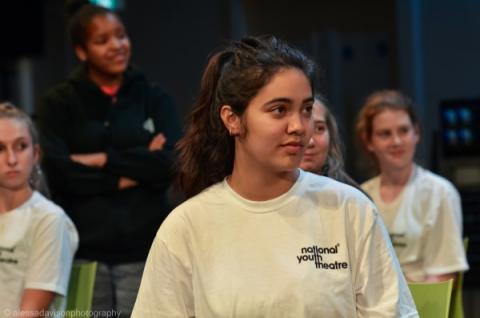The Risky Cities project will develop research-informed learning histories for flood prone Hull. These will then be utilised in community-based arts and heritage interventions and large-scale productions developed in collaboration with project partners Absolutely Cultured and the National Youth Theatre.
Background
Estuarine and coastal communities will be particularly vulnerable as the climate changes. Communities and businesses in these areas will need to build resilience for an uncertain future by becoming more aware of and adaptive to flood risks.
The city of Hull and Humber estuary region has an 800-year history of living with water risks, including recorded floods from the thirteenth century onwards as well as several major floods since 2000. Despite this, research has found that local residents have a low engagement with flood risks and adaptation measures, such as flood alert systems.
In response, the local councils, alongside the Environment Agency, Yorkshire Water and the University of Hull, have developed the Living with Water Partnership with the principle aim of increasing awareness and engagement in the region.
The Risky Cities project will contribute by drawing on Hull’s long history of living with water, as recorded in its artistic and cultural heritage, as a means of increasing the engagement of those currently living in higher risk communities.
Areas of investigation
This project will focus on three areas of investigation:
Firstly, it will seek to understand how Hull communities have experienced, responded to and learned to live with water over the last 800 years. It will develop understanding on how water has been managed and governed, and about the adaptations and knowledge systems used to develop community resilience.
Secondly, it will consider the fictions of flooding – as recorded in poetry, prose, drama and newspapers – that have arisen alongside, and in response to, the experience of living with water in Hull. These accounts will be reviewed for what they say about how past communities responded to flooding events and whether, by creating artistic recordings of the events, the communities gained resilience.
Finally, the project will explore the opportunities for using meaningful, place-based stories about the past, as a means of working with present day communities to build climate change awareness and flood resilience. The project will explore how the effectiveness of arts based interventions can be evaluated and will seek to establish best practice guidelines to be used in future projects in other risky cities.
Project outputs
- Community and youth engagement in co-creating a range of artistic outputs including film, theatre and poetry
- A city-wide, week-long flood festival to share the ambitions and outputs of the project
- Two major performance events: Water2020, a projection and light-based event led by Absolutely Cultured, and a theatrical performance of Melt led by the National Youth Theatre
- A website and social media presence to support and disseminate the programme of events
- A policy report based on using arts and heritage interventions to build flood resilience in Hull
- Contributions to academia through publications and a one-day end of project workshop
Find out more about the project on the Risky Cities website: https://riskycities.hull.ac.uk/

